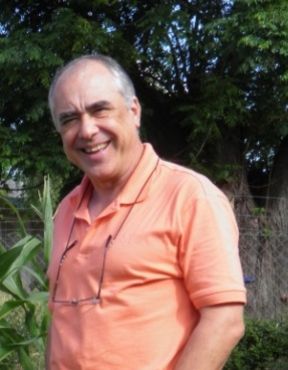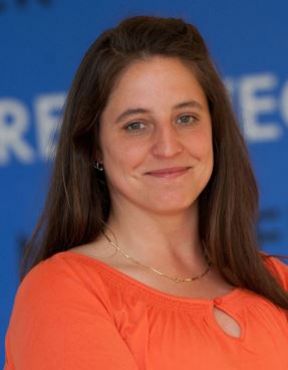WP 6 - Ecological Modeling
Objectives
Work package 6 “Ecological Modeling” is divided into two sub-WPs: A) Spatial Explicit System Models and B) Food Web Modeling
The objective is to develop and establish both spatial models of benthic fauna and flora and food web models in the face of a climate induced changing environment, in order to understand and predict current and future changes in species distribution, community composition and nutritional relationships and to identify the main drivers of these changes.
About the WP Leader Fernando Momo and Co-Leader Kerstin Jerosch
WP 6 is led by Prof. Dr. Fernando Momo of the Universidad Nacional de General Sarmiento in Argentina.
Dr. Fernando R. Momo is a teacher and researcher at the National University of General Sarmiento, Argentina. He is an expert in mathematical modeling of ecological processes both at the population and community level. He has worked on Antarctic themes from his doctoral thesis, presented in 1996. He has over 60 publications in scientific journals and books. Currently, his main themes of research in Antarctic systems are the structure of food webs in the ecosystem of Potter Cove, and the development of dynamic models of changes in benthic communities from the impact of sediment due for ice melting.
The Co-Leader of WP 6 is Dr. Kerstin Jerosch of the Alfred Wegener Institute, Helmholtz Centre for Polar and Marine Research in Germany.
Kerstin Jerosch is an expert in geostatistical and multivariate analysis of interdisciplinary marine data sets with degrees from the Humboldt University of Berlin (Diplom in Geography, 2002) and from the University of Bremen (Doctoral Degree in Marine Geoscience, Bremen University, 2006). She has specialized in the spatial analysis of biogeochemical regionalization of the sea floor and the calculation of biogeochemical budgets using GIS and open source analysis tools. She also has focused her research on extracting geochemical indicators from sea floor videos at submarine mud volcanoes in the Arctic by quantifying their coverage of chemoautotrophic species (Beggiatoa bacteria mats and Pogonophora tube worms). Parts of her work are research data management, Open Access, geo data infrastructure and web portals. From 2009 to 2011 she has extended her spatial and video analysis experiences as Post-doctoral Research Fellow at the Bedford Institute of Oceanography, Geological Survey of Canada, funded by Natural Sciences and Engineering Research Council of Canada (NSERC). She participated in 20 expeditions with “FFS Walther Herwig III”, “RV Victor Hensen", “CCGS Hudson”, “RV Polarstern" to the North Sea, Baltic Sea, Artic and Bay of Fundy and is certificated research diver. At the University of Bremen and on workshops she teaches the use of GIS, has published in peer reviewed journals and acts as a reviewer of journal manuscripts. Currently, she heads the DFG-Priority Programme Antarctic Research Identification of Biogeochemical Provinces in the Southern Ocean: Spatial modeling of geochemical, sedimentological and biological data (2013-2016).

Fernando Momo, marine ecologist and theoretical biologist at the National University of General Sarmiento in Buenos Aires, Argentina.

Kerstin Jerosch, marine ecologist and marine geoscientist at the Alfred Wegener Institute Helmholtz Centre for Polar and Marine Research in Bremerhaven, Germany.
